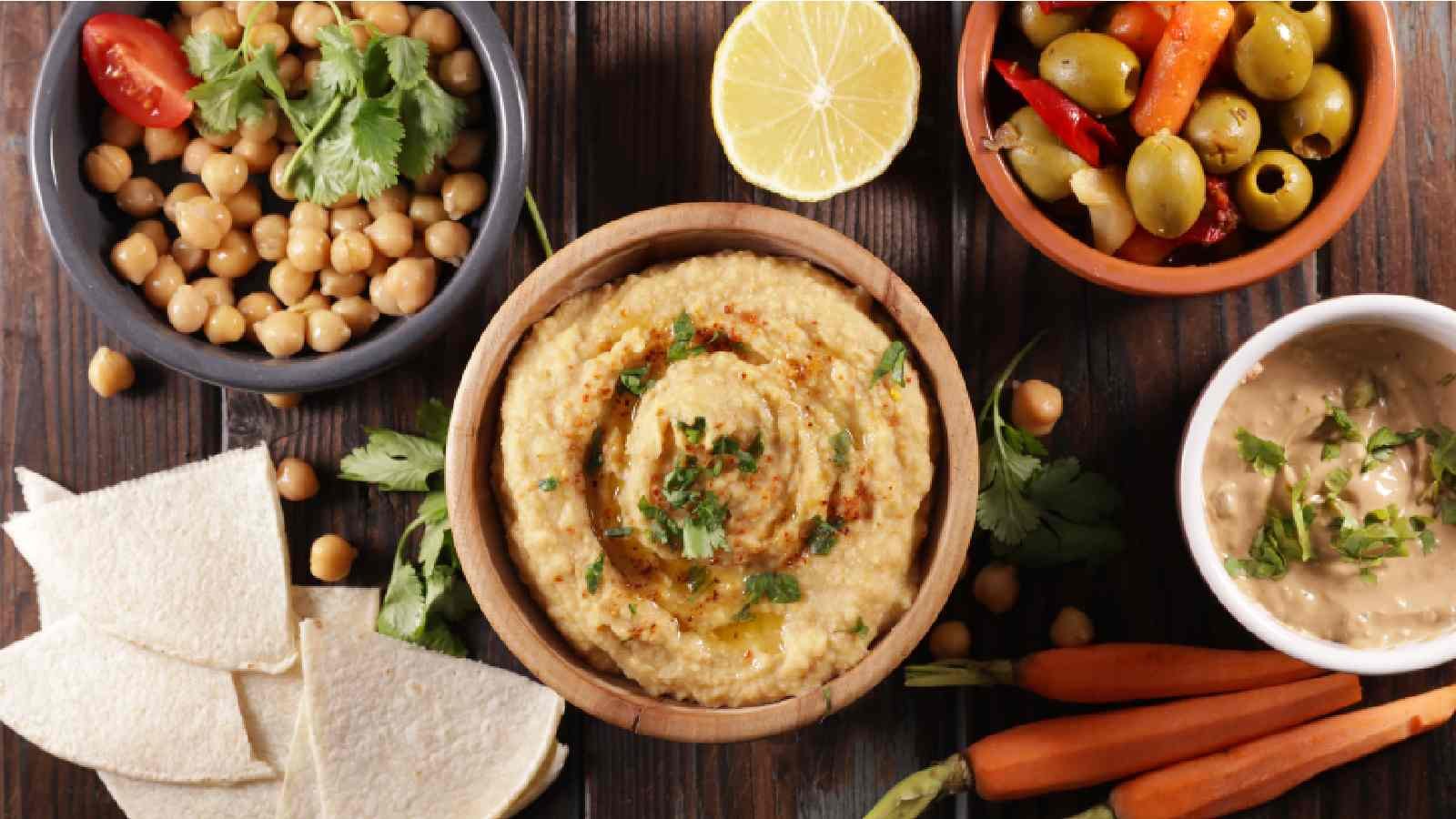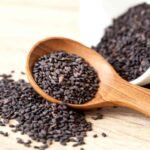[ad_1]
Hummus is one of the most popular and tasty dips. But is it good for your health? Read on to learn about the health benefits of hummus.
Hummus is one of those savoury dips that you can enjoy any time of the day. You can have it during lunch or eat it while enjoying your evening snacks. The delicious dip is made with mashed chickpeas, tahini, and other ingredients like garlic, lemon juice, and olive oil. It is tasty and good for your health too. Let us explore the health benefits of hummus.
To know all about this popular dip, Health Shots got in touch with Senior Nutrition Therapist, Maitry Gala.

What is hummus?
Hummus originated in the Middle-Eastern part of the world, where it is consumed as a healthy dip that goes well with pita bread. It is made from cooked, mashed chickpeas blended with tahini (sesame seeds), lemon juice, and garlic. The standard preparation is finished with a garnish of olive oil, a few whole chickpeas, parsley, and paprika. In the West, it is often served as a snack or appetiser with crackers or vegetables. Today, its reach is spread worldwide as a healthy snack, savoury dish, or dip. Most people can eat hummus as part of a daily meal but in small quantities.
What are the health benefits of hummus?
Hummus is packed with nutrition, as it provides a wide variety of vitamins and minerals, including manganese, copper, folate, and iron, shares Gala. So, the nutrient-dense hummus offers many health benefits.
1. Anti-inflammation properties
Anti-inflammatory is the property that helps reduce inflammation and swelling. Hummus has anti-inflammatory properties due to its ingredients like olive oil and tahini.
2. Promotes growth of healthy gut bacteria
It is a good source of dietary fiber, specifically the fiber content of chickpeas which promotes the growth of healthy gut bacteria, as it produces butyrate.
3. Good for the heart
Hummus contains resistant starch, and good fats, and is high in protein and fiber which makes it low in glycemic index thereby maintaining blood sugar levels and helping to reduce the risk of heart disease.
Select Topics of your interest and let us customize your feed.

4. Aids in weight loss
Frequent use of chickpeas in the diet may improve waist circumference, lower body mass index (BMI), and lower weight. This is partially attributed to the kind of starch found in chickpeas, of which amylose makes up one-third. This starch is more resistant to our digestive enzymes. You can try making the dip at home by following these hummus recipes.
But Gala says, “People who are sensitive to FODMAPS or fermentable oligosaccharides, disaccharides, monosaccharides, and polyols, such as those with irritable bowel syndrome, should be careful not to overindulge in hummus. Chickpeas the main ingredient in Hummus are high in raffinose, a type of carbohydrate known as a FODMAPS. When consumed in large quantities, it might cause bloating for some, especially pregnant people.”
Though hummus is packed with many nutrients and offers health benefits, consuming it in moderation is the key.
[ad_2]
Source link







